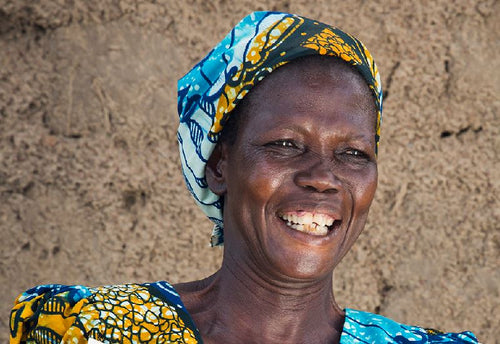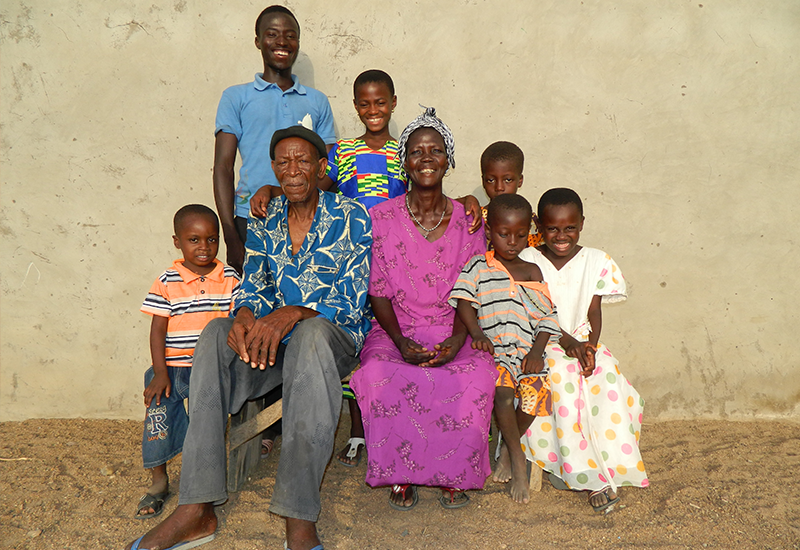
Kakwara Atogipwoa
Aduna brings African superfoods from village to shelf, creating sustainable livelihoods for producers. Through our baobab fruit supply chain, over 2,300 women in Upper East Ghana and Centre-Sud Burkina Faso are receiving sustainable incomes. Here is the story of one of these women, Kakwara Atogipwoa.
Name: Kakwara Atogipwoa
From: Pindaa Community, Upper East Region, Northern Ghana
Job: Baobab Producer
HOW MANY PEOPLE ARE IN YOUR HOUSEHOLD?
There are twelve of us in my household. My husband Awobalade and myself, our five children – we have four sons, Kojo, Kwabena, Wenapete and Anegwene and a daughter Kudaane. We also take care of six of my nieces and nephews who live with us.
WHAT WAS LIFE LIKE BEFORE YOU STARTED WORKING WITH ADUNA?
Before I started working with Aduna to harvest baobab, me and my husband and our children used to farm peanuts, rice and Africa late millet during the raining season which is five months of the year. We would farm between half an acre to an acre of land but sometimes it would be bad yields especially if the rain fell heavily. We did not produce enough to sell, just to feed ourselves but it was hard to make the food last year.
For the rest of the year in the dry season, I would collect fuel wood from the wild and sell it to support my family and make a living. Life was not easy. We usually depended on wild fruit and leaves to feed our family and we had no money to buy books and pens for our children to go to school. Only our eldest son Kojo went to school but he had to drop out because we could not afford it. Sometimes my husband would travel down South in such of labour work to earn some income which he would send to me for the up keep of the children. But he told me sometimes the workers would be abused with no place to sleep and not being paid.

Kakwara and her family
WHAT IS LIFE LIKE NOW YOU ARE PART OF THE ADUNA SUPPLY CHAIN?
Before the project, if I had wanted to sell baobab I would have to process the fruits and carry the powder a long distance - up to 45 kilometers to a town called Po’ in Burkina Faso. Now I know that there is a ready market for the baobab fruits I harvest, it is much easier and life is better.
I am now earning three times more annual income, which has helped me to buy pens and books for my children and to pay their school fees so they can all now go to school. It has helped me to buy food stuffs and ingredients so we can all eat better meals more than once a day. I can support myself during farming season and can buy farming materials like seeds for sewing. This means I can now farm more than one acre per crop which previously was not possible so now we have profit from farming too.
We have now insured ourselves and our dependents on the national health insurance scheme which enables us to get free health care. Previously we had to pay before we could get treatment which lead to us resorting to herbs rather going to hospital. Everything we were not able to do we can now do since this project came. We live dignified lives and we hope Aduna will continue to work with us for things to get better and better.
What is your favourite way to use baobab?
We use baobab to prepare food called Tuo Zaafi or TZ. We also use the bark of the tree to make ropes and to treat diseases and make soup using baobab leaves.

